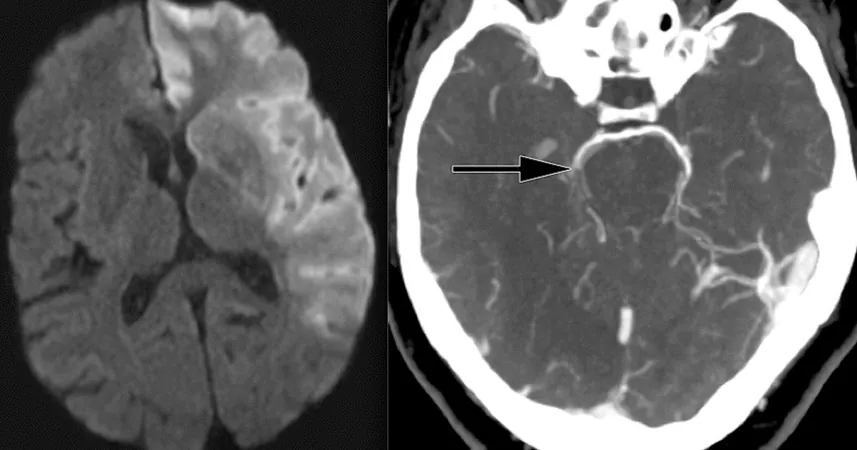
Revolutionary Discovery on Protein ‘Hopping’ Could Transform Cancer Treatment Strategies!
2024-12-14
Author: Siti
In an exciting breakthrough for biophysical chemistry, researchers at Columbia University have discovered a surprising behavior of the protein eIF4F, which could open new avenues for drug development, particularly in the fight against cancer. Since 2006, under the leadership of Professor Ruben Gonzalez, the Columbia lab has employed cutting-edge single-molecule light microscopy to unveil the intricate dynamics of biomolecules, providing a 'movie-like' depiction of how these essential components function in our bodies.
As a prominent figure in the field, Gonzalez, who will soon take on the role of Dean of Science at Columbia's Faculty of Arts and Sciences, has shifted the understanding of eIF4F's role in protein synthesis. This newfound insight is detailed in a recent publication in the journal *Nature*, highlighting the unexpected ‘hopping’ motion of eIF4F as it searches for messenger RNAs (mRNAs) - the critical molecules that carry genetic instructions for protein synthesis.
The Groundbreaking ‘Hopping’ Revelation
For years, scientists assumed that eIF4F simply assembled directly at the mRNA 'cap' — the protective structure at the end of mRNAs. However, Gonzalez's lab has demonstrated that eIF4F instead 'hops' along the mRNA strand to locate the cap. This discovery sheds light on the dynamic behavior that influences how proteins are made and how cellular processes are regulated.
“This finding is pivotal; it not only updates our understanding of a fundamental biological function but also redefines how we think about the interactions between mRNAs and proteins. For decades, we have known that various regions of mRNA influence eIF4F's ability to function effectively, yet we lacked clarity on how this occurred," Gonzalez stated.
Implications for Drug Development
This research has significant implications for developing more precise drug therapies. Current anticancer drugs typically aim to inhibit eIF4F's assembly at the cap, a method that can disrupt various essential cellular activities, leading to unwanted side effects. With the new knowledge that eIF4F utilizes this hopping mechanism, scientists can begin to design drugs that can more subtly influence how eIF4F navigates along the mRNA, potentially allowing treatments that target only harmful proteins while preserving normal cellular functions.
A Future of Precision Medicine
As the field moves toward a more refined understanding of biomolecular mechanics, the dream of developing drugs that act like a surgical scalpel rather than a blunt instrument becomes more achievable. The hope is that this revolutionary approach could lead to treatments that selectively disrupt pathways involved in diseases like cancer, offering renewed hope for patients and a future where treatments can be tailored to individual needs without compromising overall cellular health.
Gonzalez’s work is a captivating testament to how advanced technology can illuminate the microscopic dance of life at a fundamental level, potentially rewriting the future of medicine and our approach to treating complex diseases. With this pioneering research, the future of personalized medicine may be closer than ever!



 Brasil (PT)
Brasil (PT)
 Canada (EN)
Canada (EN)
 Chile (ES)
Chile (ES)
 España (ES)
España (ES)
 France (FR)
France (FR)
 Hong Kong (EN)
Hong Kong (EN)
 Italia (IT)
Italia (IT)
 日本 (JA)
日本 (JA)
 Magyarország (HU)
Magyarország (HU)
 Norge (NO)
Norge (NO)
 Polska (PL)
Polska (PL)
 Schweiz (DE)
Schweiz (DE)
 Singapore (EN)
Singapore (EN)
 Sverige (SV)
Sverige (SV)
 Suomi (FI)
Suomi (FI)
 Türkiye (TR)
Türkiye (TR)